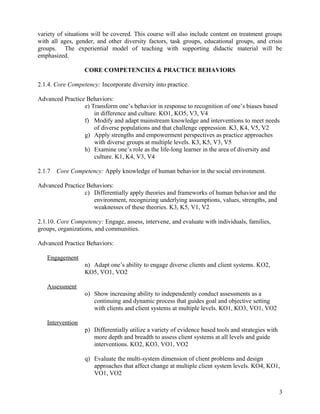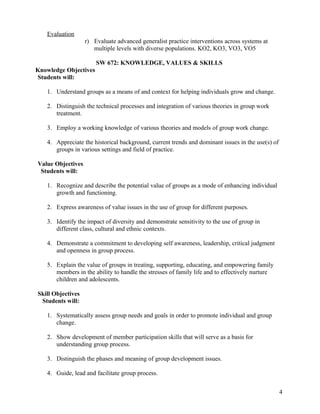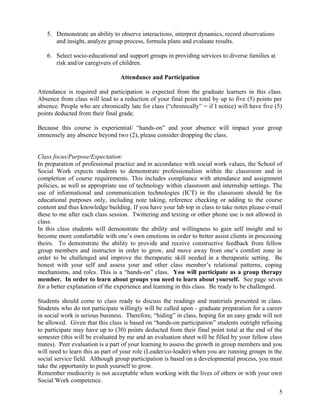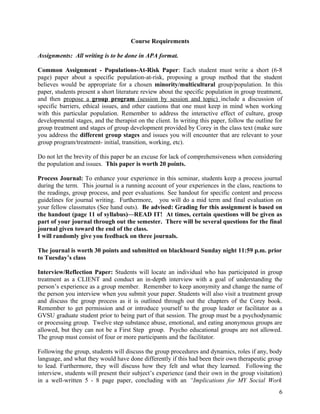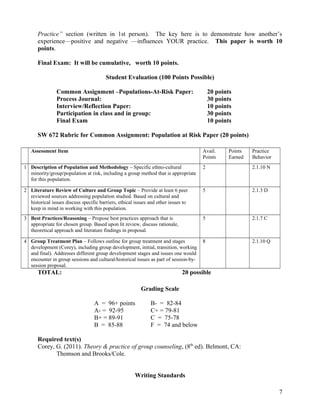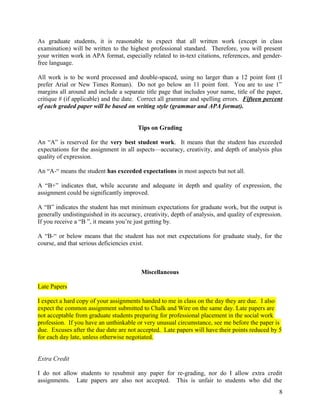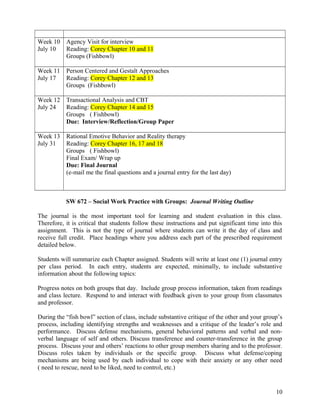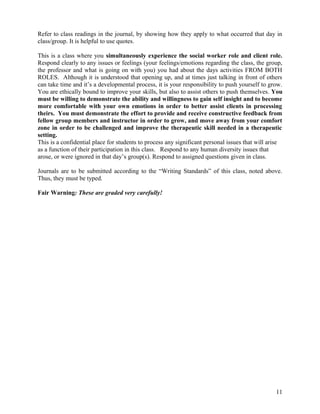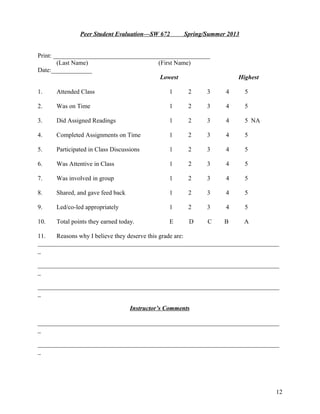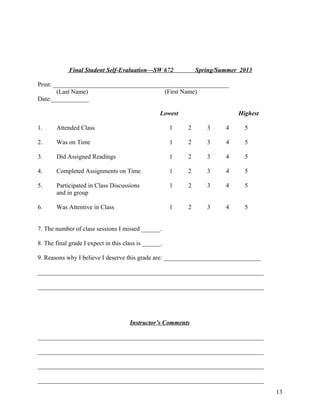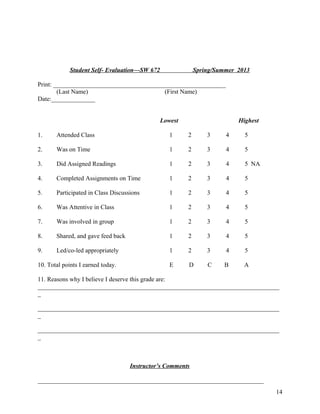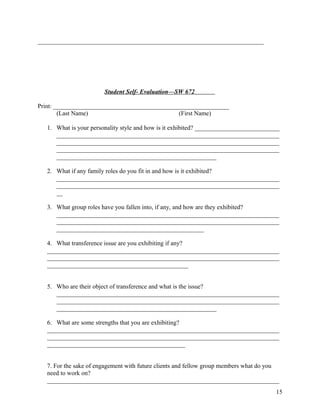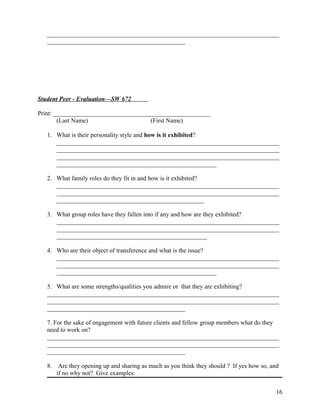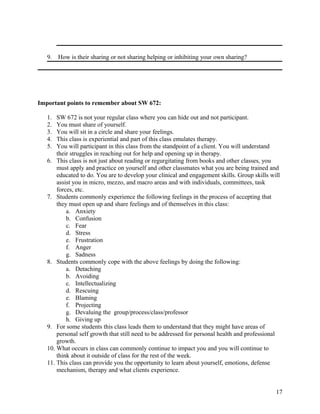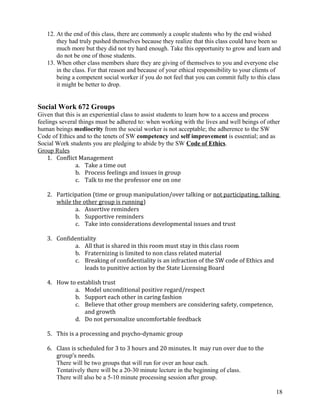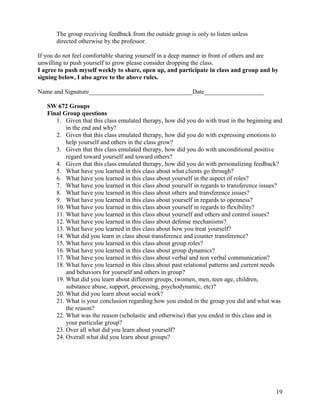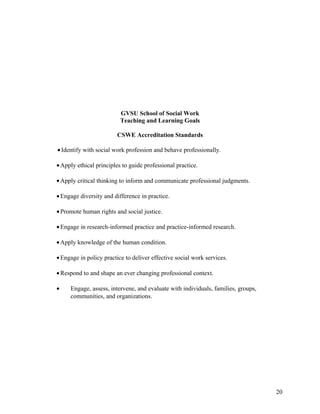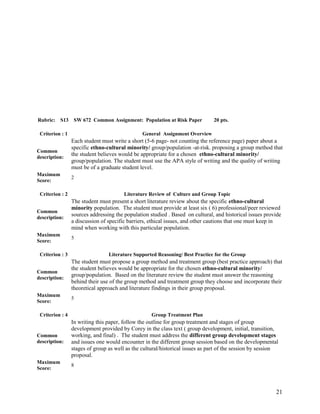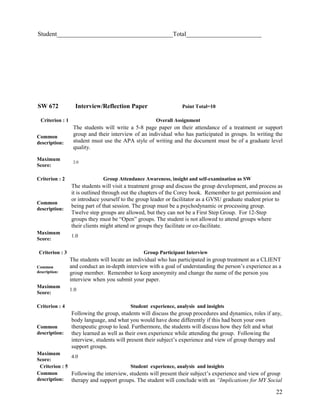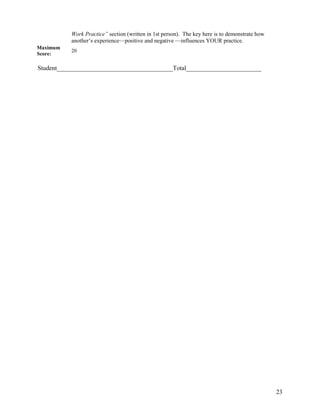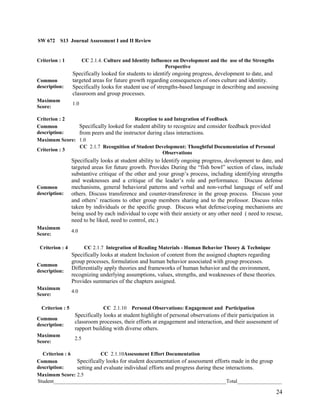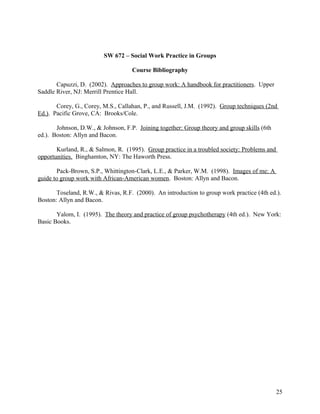This document provides information about the course SW 672 - Social Work Practice with Groups to be taught in the spring/summer 2013 term. It includes the following key details:
- The course will be held on Wednesdays from 6:30-9:50pm in DeVos classroom 305E. It is a 3 credit course with no prerequisites.
- Students will learn about group dynamics and processes, and integrate theories of task and personal change group structures. The experiential model of teaching will be emphasized.
- Assignments include a populations-at-risk paper, process journal, interview/reflection paper, class participation, and a final exam. Students must demonstrate competencies around diversity, human
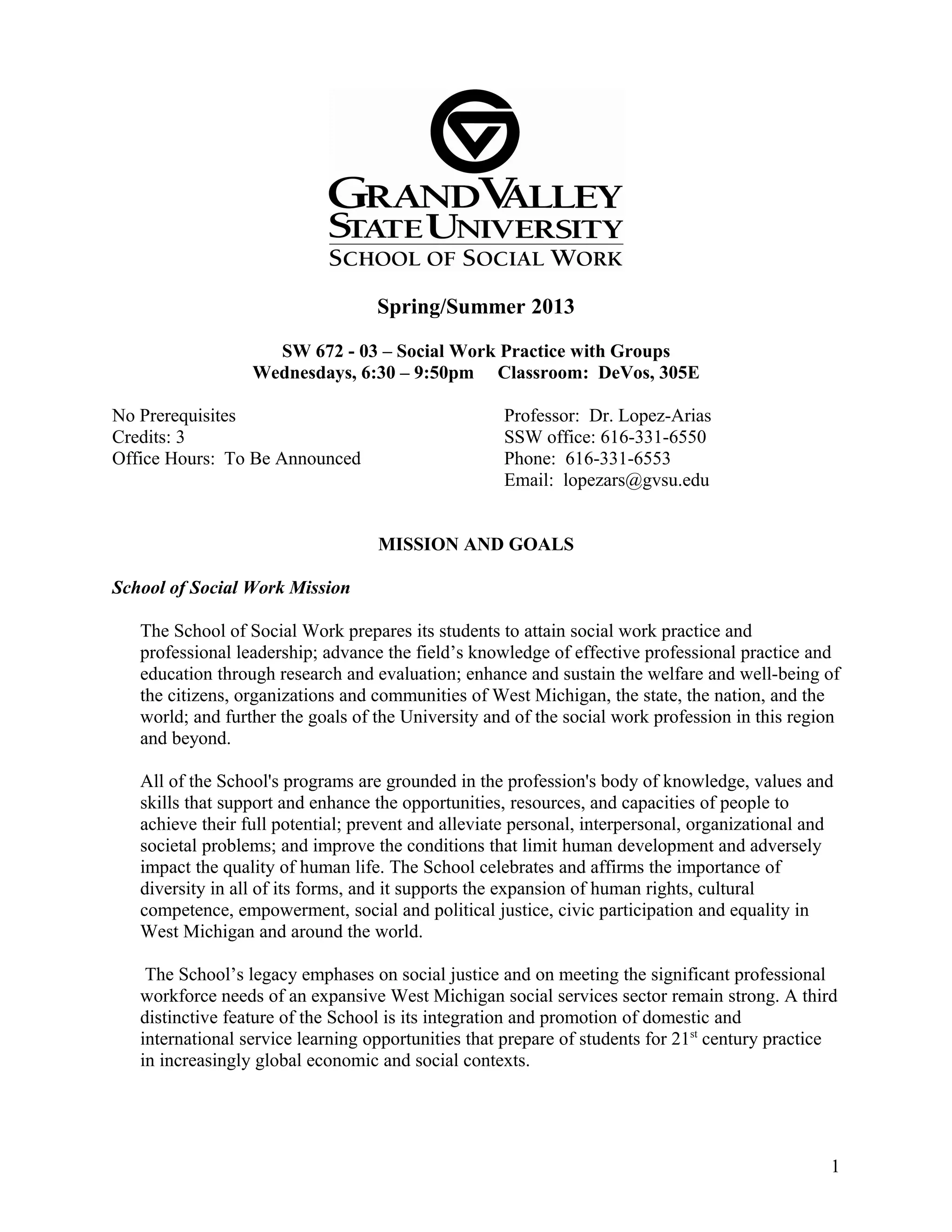
![M.S.W. Program Goals
• To award the graduate degree to individuals who are not only skilled practitioners but
also capable of assuming leadership and scholarly professional roles in the community,
region, state, national and global communities.
• To contribute to the ongoing development of professional social work knowledge and
practice through research and scholarly inquiry that employ state-of-the-art technology.
• To maximize the strengths and assets within local, regional, statewide, national and
international social welfare and human services communities through direct
participations in organizing, leading and participating in effective capacity building and
social and political action activities.
Council on Social Work Education [CSWE]: Commission on Accreditation [CSWE, CA].
(2008). Educational policy and accreditation standards [EPAS].
Accommodation needs:
Any student in this class who has special needs because of a learning disability, or other kinds of
disabilities, must report to the Disability Support Resources. This is a required action if you
wish special consideration. Also, please feel free to come and discuss this with me. For further
information check the website at http://www.gvsu.edu/dsr/ or call 331-2490. The office is
located at 200 Student Services Building on the GVSU Allendale campus.
Chalk and Wire Requirement
All students are required to purchase and use Chalk and Wire, at a minimum, to upload
the one Common Assignment listed for each required course. This assignment is clearly
noted in each syllabus. In addition, the School of Social Work STRONGLY encourages
students to upload every other written assignment into Chalk and Wire as an “artifact”.
This accomplishes two purposes:
1)
Chalk and Wire serves as a “cloud” and provides remote off-site storage of all
uploaded documents for you in case of loss/theft/crash of your computer, and
2)
uploaded documents will be helpful and dramatically simplify your SW 640
Capstone course where you assemble relative documents to demonstrate your
achievement of the 10 core competencies and advanced practice behaviors required
in order to achieve the M.S.W. degree.
Uploading your Common Assignment, and scoring of this one document by the faculty
member, is the primary mechanism the GVSU School of Social Work has to assess how all
of our students are progressing in developing competencies. This assessment is required
for our continued accreditation by the Council on Social Work Education (CSWE), which
provides significant added value for your M.S.W. degree.
COURSE DESCRIPTION
This course is designed to help students increase their knowledge and awareness of group
dynamics and group processes, as well as integrating the underlying theories and concepts of
both task and personal change group structures. Effective participation and group planning in a
2](https://image.slidesharecdn.com/672sla-20s13-140226214908-phpapp02/85/672sla-s13-2-320.jpg)
